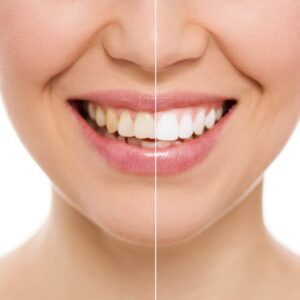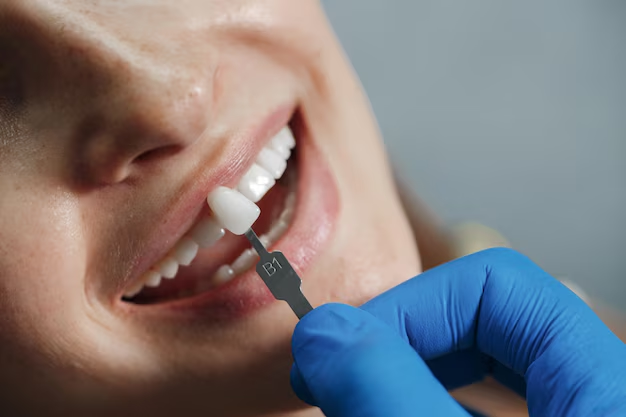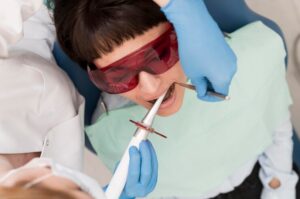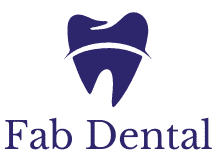
Maintaining a healthy, beautiful smile requires more than just regular brushing and flossing. Diet plays a significant role in oral health, and what you eat (or don’t eat) can have a lasting impact on your teeth and gums. Whether you’re seeking affordable dentures near me, looking for the best Invisalign orthodontist in Hayward, or considering dental braces Hayward, knowing how your diet affects your oral health can help ensure that your smile remains bright and healthy throughout any dental treatment.
The Connection Between Diet and Oral Health
Your diet provides the essential nutrients your body needs to keep your teeth strong and your gums healthy. The foods and drinks you consume can either contribute to tooth decay, gum disease, and other dental problems, or they can support the growth and maintenance of healthy teeth. Here’s how diet affects oral health:
- Nutrient Absorption: Eating the right nutrients can strengthen tooth enamel, fight off harmful bacteria, and keep your gums healthy. Essential vitamins like Vitamin C and D, and minerals like calcium and phosphorus, support overall oral health.
- Sugar and Acid: Diets high in sugar and acidic foods can contribute to tooth decay by encouraging the growth of harmful bacteria that break down enamel. This can lead to cavities, gum disease, and even tooth loss.
- Saliva Production: Certain foods stimulate saliva production, which helps rinse away food particles and bacteria, neutralizing acids and protecting your teeth from decay.
Incorporating the right foods into your diet can reduce your risk of needing major dental treatments like affordable dentures near me or dental braces Hayward and keep your smile beautiful for years to come.
“A balanced diet not only nourishes your body, but also plays a pivotal role in ensuring that your teeth and gums stay strong and healthy throughout your life.”
— Dr. Alag, DDS, FAGD, Fab Dental Hayward.

What to Eat for a Healthy Smile
To keep your teeth and gums in top shape, focus on a diet that includes nutrient-rich foods that promote oral health. Here are some of the best options:
1. Dairy Products (Cheese, Yogurt, Milk)
Dairy products are rich in calcium and phosphorus, which help rebuild and strengthen tooth enamel. Cheese, in particular, is not only good for your teeth but also helps stimulate saliva production, which washes away food particles and neutralizes acids in the mouth.
2. Leafy Greens (Spinach, Kale, Broccoli)
Leafy greens like spinach, kale, and broccoli are packed with vitamins and minerals, including calcium and folic acid, which help keep your gums healthy and promote the remineralization of tooth enamel. These vegetables also encourage saliva production to help protect against plaque buildup.
3. Apples and Pears
The fiber in apples and pears acts like a natural toothbrush, scrubbing your teeth as you eat and helping to remove food particles and plaque. Additionally, their high water content helps balance the acidity in your mouth and stimulates saliva production.
4. Nuts and Seeds
Nuts, like almonds, and seeds are high in healthy fats, antioxidants, and minerals, such as vitamin E, which support gum health and protect against inflammation. They also contain calcium, which is essential for strengthening teeth and bones.
5. Carrots and Celery
Raw vegetables like carrots and celery are great for your teeth. Their crunchiness helps remove plaque and food particles, while their high water content helps keep your mouth hydrated and flush out harmful bacteria. These veggies also stimulate saliva production, which helps protect your teeth.
6. Green Tea
Green tea contains polyphenols that help kill harmful bacteria in the mouth, reducing plaque buildup and the risk of gum disease. Additionally, the antioxidants in green tea help reduce inflammation, promoting healthier gums and teeth.
7. Water
Water is perhaps the best drink for oral health. It helps rinse away food particles, reduces acid levels in the mouth, and encourages saliva production. Drinking plenty of water throughout the day can help keep your mouth hydrated, neutralize acids, and reduce your risk of tooth decay.
What to Avoid for Better Oral Health
While certain foods can boost your oral health, others can harm your teeth and gums. Here’s a list of foods and drinks to limit or avoid:
1. Sugary Snacks and Beverages
Sugary foods and drinks like candy, soda, and pastries feed harmful bacteria in your mouth. These bacteria produce acids that erode tooth enamel and lead to cavities. Soda is especially problematic because it’s both sugary and acidic, which can contribute to enamel erosion.
2. Starchy Foods (Chips, Crackers, White Bread)
Starches like chips and white bread break down into sugars in your mouth, providing a food source for bacteria that produce harmful acids. These foods also tend to get stuck in your teeth, contributing to plaque buildup.
3. Citrus Fruits
Although citrus fruits are rich in Vitamin C, their high acidity can weaken tooth enamel over time. While eating citrus in moderation is generally safe, it’s important to rinse your mouth with water afterward to neutralize the acid and prevent enamel erosion.
4. Alcohol
Alcohol can dry out your mouth, reducing saliva production and increasing your risk of cavities and gum disease. Additionally, alcoholic beverages like wine and cocktails often contain high amounts of sugar or acidity, which can further damage your teeth.
5. Sticky Foods (Caramel, Dried Fruit)
Sticky foods tend to stick to your teeth, creating an environment where bacteria can thrive. Dried fruits like raisins or apricots can also be high in sugar, which leads to plaque buildup and cavity formation if not removed promptly.
6. Ice
Chewing on ice can chip or crack your teeth, leading to sensitivity and even fractures. While it may seem harmless, chewing on ice can damage your enamel and cause long-term problems for your teeth.
Diet and Orthodontic Treatment
If you’re undergoing orthodontic treatment, whether it’s dental braces Hayward or Invisalign, diet plays an important role in the success of your treatment and maintaining oral health.
- For Dental Braces: Avoid hard, sticky, or crunchy foods that could damage or dislodge the brackets and wires of your braces. Stick to soft foods like pasta, yogurt, and mashed potatoes to make eating more comfortable during your treatment.
- For Invisalign: Invisalign aligners are removable, so you can eat whatever you want. However, be sure to remove your aligners before eating or drinking anything except water to prevent food particles from getting trapped in your aligners, which can affect your treatment.
Good nutrition is essential for orthodontic treatment to work effectively, helping you achieve the best results and maintain strong, healthy teeth throughout the process.
FAQs About Diet and Oral Health
Can diet really prevent cavities?
Yes! A balanced diet rich in calcium, phosphorus, and other nutrients can help strengthen your teeth, while a diet high in sugar and acids can contribute to cavities. By making healthier food choices, you can significantly reduce your risk of tooth decay.
What are the best foods for gum health?
Foods rich in Vitamin C (like citrus fruits in moderation, bell peppers, and broccoli), calcium (such as dairy and leafy greens), and omega-3 fatty acids (found in fish and nuts) are great for supporting gum health and preventing gum disease.
How can I protect my teeth while wearing braces?
To protect your teeth while wearing braces, avoid sticky and hard foods, such as caramel, popcorn, or chewing ice, which can damage or dislodge the wires and brackets. Soft foods like soups, smoothies, and mashed potatoes are easier to eat and won’t put stress on your braces.
Should I avoid sugary foods during orthodontic treatment?
Yes, it’s a good idea to avoid sugary foods during orthodontic treatment. Sugars feed bacteria in your mouth, leading to plaque buildup and an increased risk of cavities. If you do indulge, make sure to brush and floss carefully afterward.
How does diet affect the success of Invisalign?
While you can eat anything you like during Invisalign treatment, be sure to remove your aligners before eating or drinking anything except water. This ensures that no food particles or drinks can get trapped in the aligners, which can affect their fit and your treatment progress.
Conclusion
A healthy diet is essential for maintaining strong teeth and gums, especially if you are undergoing treatments like dental braces Hayward, Invisalign, or considering affordable dentures near me. By eating the right foods, such as dairy, leafy greens, and crunchy fruits and vegetables, you can protect your teeth from decay, support your gums, and keep your smile beautiful. Avoiding sugary, acidic, and sticky foods will help reduce the risk of tooth damage and ensure that your dental treatments remain successful.
If you’re looking for personalized advice, or to schedule a consultation with the best orthodontist in Hayward or a trusted dental clinic in Hayward, contact us today and take the first step toward a healthier, more radiant smile.







